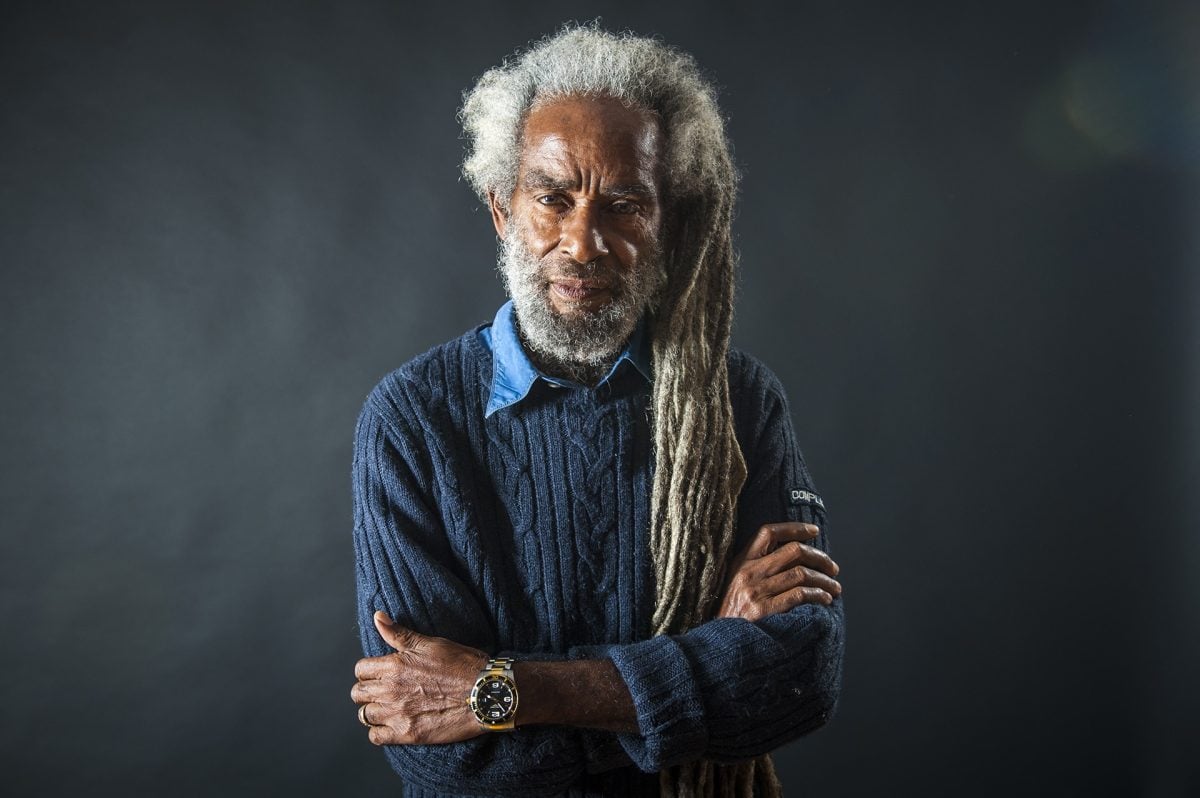The Max Romeo Song That He Didn’t Want To Record, And Why It Won Over UK Skinheads

Reggae veteran Max Romeo says he was reluctant to record Wet Dreams, a risqué 1969 UK chart hit, but decided to do so after much coercion from legendary music producer Bunny ‘Striker’ Lee.
In an interview with YouTuber Teach Dem, the 78-year-old singer-songwriter was asked why he had held out on recording the song, which he said was his first big success as a solo artist.
“No, because I didn’t like the image you know but I was forced to, by Bunny,” Romeo explained.
Romeo said that after the song spent 25 weeks on the UK Singles Chart, peaking at No. 10, he decided to do similar double-entendre songs such as Play with Your Pu–y , Pu–y Watchman , and Wine Her Goosie , but had an epiphany two years later and decided to desist.
“So after I see the glory of it, I give them a barrage of songs like that. But then 1971 you know I just pulled up and say ‘wait, I can’t have a catalogue like this for my grandchildren’. So I changed to cultural songs [in] 1971,” he said.
According to Trojan Records, “the potent blend of humor and sexual ‘suggestiveness’ ensured its popularity with the U.K. audience who had never heard anything quite so blatant before.”
Wet Dream, which had the hook “Lie dung gal mek me push it up, push it up, lie dung,” was banned from the BBC but propelled Romeo to being an instant favorite of Skinheads in the UK.
Romeo recounted that the ban by the BBC spurred the rebellious Skinheads, out of sheer perversity, to make Wet Dreams their song of choice.
“It was an anthem for the skinheads. The skinheads was a little group that was just forming, yes, fighting against the system. And when they banned it from the radio – it played twice on the radio and they banned on BBC – so the skinheads say ‘yeah all right we’re gonna use this as our protest song’,” Romeo explained.
“So they start going dances…and if they come now and tell you play Wet Dream and you don’t have it, dem mash up di tings. Dese guys wear some Dr Martin’s steel toe shoes man. Anything they kick break,” he added.
Romeo said that the song was not only banned by the BBC, but he was forbidden from performing it in some venues.
“I was told not to but in some cases I’m forced to by the audience,” he said laughing.
Born Maxwell Smith in rural Jamaica, Romeo’s other recording career classics include Chase The Devil, One Step Forward, Maccabee Version, War Inna Babylon, and Let the Power Fall On I.
Last December, he released his 45th album World of Ghouls, and on January 6 this year, he announced that he would be doing his final tour this year, dubbed ‘The Ultimate Tour’ “to pay his respects,” and would be releasing a commemorative album ahead of his retirement from musical globetrotting, after 57 years in the business.
During the interview, Romeo explained that when he went to the UK, as a black man it was a culture shock for him, but seeing the large numbers of black people living there, from various countries across the world, he soon acclimatized. However, he said that his core audiences over the decades have been mainly Caucasian people.
“And then I realized that until today is the white people who follow me more… because my agent keep me in Europe you know all over Europe. I don’t even find time to do a show in Jamaica,” he explained, noting later, that very few people in Jamaica know Wet Dreams.
“Di black people, some a dem curse mi an seh me is a white man singer, becaw everytime dem come a mi concert is pare white people. I seh ‘I don’t book myself… If these people love mi what I mus do run dem…?’” he said chuckling.
Max Romeo was one of the artists, who penned songs that were used in election campaigns in 1972, which helped to propel former Prime Minister, the late Michael Manley and the Peoples National Party (PNP) to power in Jamaica.
The track, Let The Power Fall On I , which Max Romeo recorded in 1972, was highly effective in helping the PNP to gain power that year.
Because Manley claimed that he was given a rod from His Imperial Majesty Haile Selassie II, to “lead his people to the promised land”, and had repeatedly brandished that rod at rallies, this attracted him much support from Rastafarians, and resulted in his loyalists giving him the moniker Joshua, after the Biblical leader who was chosen by God to lead Israel into the Promised Land.
Consequently, Romeo used this Joshua theme to form the basis of his pro-Manley recordings, among them Michael Row The Boat Ashore , and Press Along Joshua.
Years later, he gave Manley a gentle rebuke with No Joshua No , to voice his dissatisfaction with how the Prime Minister led the country.
